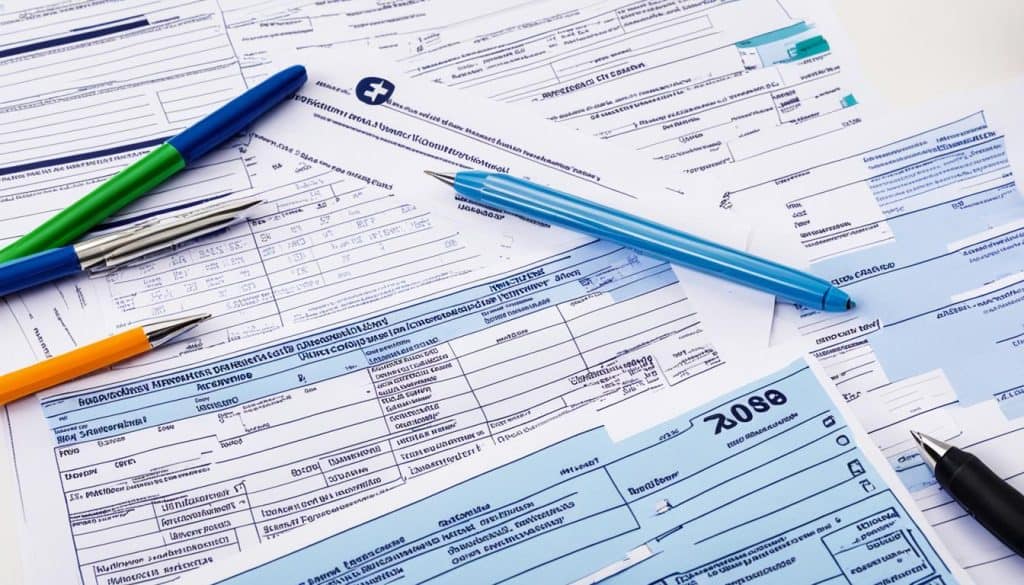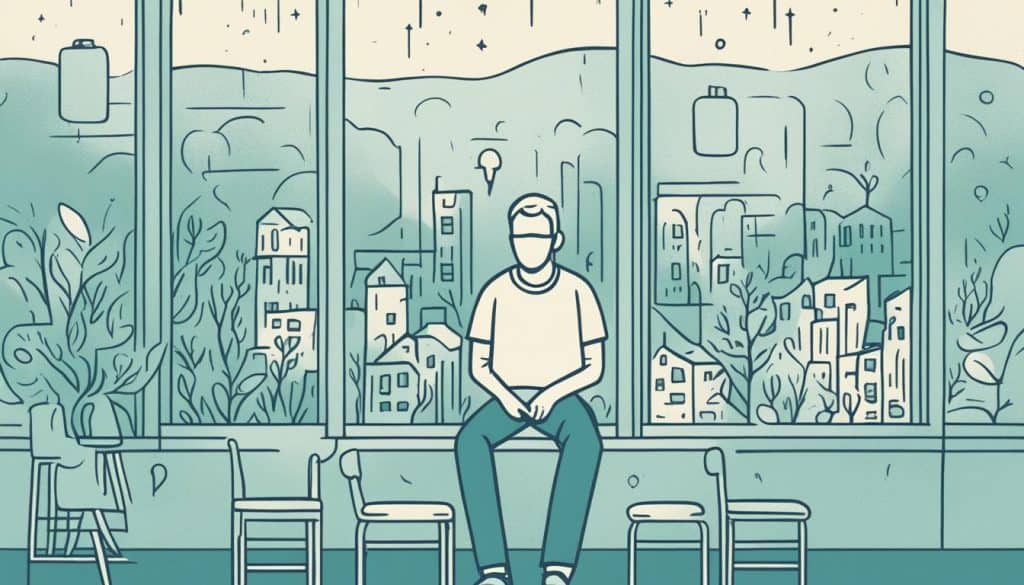Getting short-term disability for mental health can be an essential lifeline for those experiencing debilitating mental health issues. The key to a successful mental health disability claim lies in understanding the eligibility criteria and the comprehensive process of getting short-term disability. Short-term disability benefits provide necessary financial support and the time needed to recover without the pressure of work responsibilities. Though the process might seem daunting, awareness of conditions covered and proper documentation can streamline the journey toward obtaining these crucial benefits.
Key Takeaways
- Eligibility is the cornerstone of a mental health disability claim; understanding the conditions covered is vital.
- Preparing substantive documentation significantly aids in the process of getting short-term disability.
- Awareness of common mental health conditions covered can expedite the claims process.
- Timely and proper filing of claims can ease the administrative burdens and ensure support when needed.
- Engaging with the specifics of your employer’s disability plan is crucial in securing short-term disability benefits.
- Empowerment through knowledge simplifies navigating the complex landscape of disability insurance.
The Importance of Recognizing Mental Health as a Disability
The recognition of mental health as a disability is a pivotal step towards providing individuals with essential support and fostering an inclusive environment. In light of the sweeping waves of the pandemic, addressing mental health concerns has never been more crucial. With a significant surge in conditions related to stress, anxiety, and depression, understanding and classifying these concerns as disabilities allows for the necessary accommodations and benefits.
COVID-19 and the Rise of Mental Health Concerns
The pandemic has undeniably cast a long shadow on global mental health concerns, requiring us to confront and adapt to new challenges. The COVID-19 impact on mental health has catalyzed a surge in recognition for supportive measures and raised awareness about the importance of mental health recognition.
Understanding Eligibility for Mental Health under Short-term Disability
Approaching the critical matter of Eligibility criteria for mental health requires a nuanced understanding of the defining parameters. Assessing whether an individual is qualifying for short-term disability for mental health involves scrutinizing the severity and duration of the mental health condition, as well as its impact on one’s ability to perform occupational tasks.
Common Mental Health Conditions Covered by Short-term Disability
Insurance policies that acknowledge mental health parity are instrumental in assisting employees during trying times. A range of mental health conditions covered by disability insurance highlights the evolving recognition of mental wellness in the workplace. From Major Depressive Disorder to Generalized Anxiety Disorder, these are amongst the plethora of covered mental health conditions under short-term disability that cater to those in need.
- Major Depressive Disorder
- Generalized Anxiety Disorder
- Post-Traumatic Stress Disorder
- Obsessive-Compulsive Disorder
- Bipolar Disorder
Protecting employees’ mental well-being is not just a moral imperative but a societal necessity, especially when considering the COVID-19 impact on mental health. By recognizing and accommodating mental health as a notable concern, businesses not only comply with disability mandates but also invest in the holistic well-being of their workforce, cultivating a healthier, more productive environment as we navigate through and beyond the challenges of the pandemic.
Steps to Take When Filing for Short-term Disability Due to Mental Health
When it comes to filing for short-term disability due to mental health issues, the journey can be intricate, yet understanding the precise path forward is critical for a successful claim. The following steps provide a roadmap from checking your eligibility to the final stages of follow-up.
Consulting Your Employer’s Plan for Eligibility
Determining your eligibility under your employer’s plan is the initial task. It is vital to scrutinize the specifics concerning mental health coverage and confirm your condition falls under the protected claims. Be sure to review plan documents or discuss with your HR department to fully understand the coverage terms.
Gathering Essential Documentation for Your Claim
Documentation for your mental health disability claim is the cornerstone of the application process. The essential paperwork for short-term disability typically includes a comprehensive assessment from your medical provider, details of your treatment plan, and any necessary employer and employee statements to substantiate your inability to work.
Submitting and Following Up on Your Application
The act of submitting your disability application should be done with accuracy and promptness, ensuring all forms are completely filled out and submitted before deadlines. Thereafter, following up on your mental health disability claim is paramount to track the progress and respond to any requests for additional information swiftly.

Getting Short-term Disability for Mental Health: Navigating Potential Obstacles
The journey to secure short-term disability for mental health can be fraught with obstacles in mental health disability claims. It is a path that requires patience and tenacity, as the challenges in the short-term disability process can be significant. To navigate these hurdles, it’s essential to understand their nature and prepare for the complexities they present.
-
Stigma and Misunderstanding: Even in today’s more enlightened climate, mental health issues can still be met with skepticism. Claimants might find themselves facing doubt about the seriousness of their condition.
-
Stringent Documentation Requirements: Lack of adequate medical evidence is a common obstacle, and securing thorough documentation from healthcare providers can be time-consuming.
-
Vague Policy Definitions: Many disability policies have ambiguous definitions of mental health disorders, making it challenging to prove that one’s condition meets the criteria.
-
Proving the Severity and Impact: Applicants must often demonstrate how their mental health issue prevents them from working, which can be more subjective compared to physical health claims.
To confront these obstacles in mental health disability claims, it’s advisable to approach the process with a thorough understanding of your policy and the evidentiary support required. Given the inherent challenges in the short-term disability process, professional guidance from a legal expert or advocate can also be pivotal.

Navigating the complexities can seem daunting, but armed with the right information and support, claimants can overcome the barriers and access the benefits essential for their recovery.
Maximizing Your Chances of a Successful Mental Health Disability Claim
Embarking on the journey to secure short-term disability for mental health can seem daunting, but with the right approach, your journey can be both efficient and effective. Foremost is the necessity of meticulous preparation – an aspect that can significantly alter the trajectory of your claim. To enhance the prospects of a favorable claim, comprehensive documentation and a clear understanding of your policy’s nuances are paramount. It’s advisable to compile all medical records, a detailed history of your mental health condition, and any relevant treatment plans or recommendations from healthcare professionals.
Furthermore, and importantly, seeking legal assistance often plays a crucial role in maximizing chances of a successful claim. Legal experts, experienced in the intricacies of disability claims, can provide invaluable guidance and intervene on your behalf if necessary. They are adept at navigating the convolutions of insurance policies and can assist in preparing a claim that meets all required criteria. Equipping yourself with knowledge on the process is also beneficial – take advantage of resources and support groups that can shed light on similar experiences and offer practical tips for mental health disability claim success.
Lastly, being a strong advocate for your own needs is essential. Communication with your healthcare provider and insurance company should be clear, assertive, and consistent. Do not hesitate to ask questions or request further clarification on any aspect of your claim. Ensure that deadlines are met and all correspondence is timely and well-documented. Taking such strategic steps can profoundly impact the outcome of your claim, leading to a result that reflects your right to support and recognition of your mental health needs.

